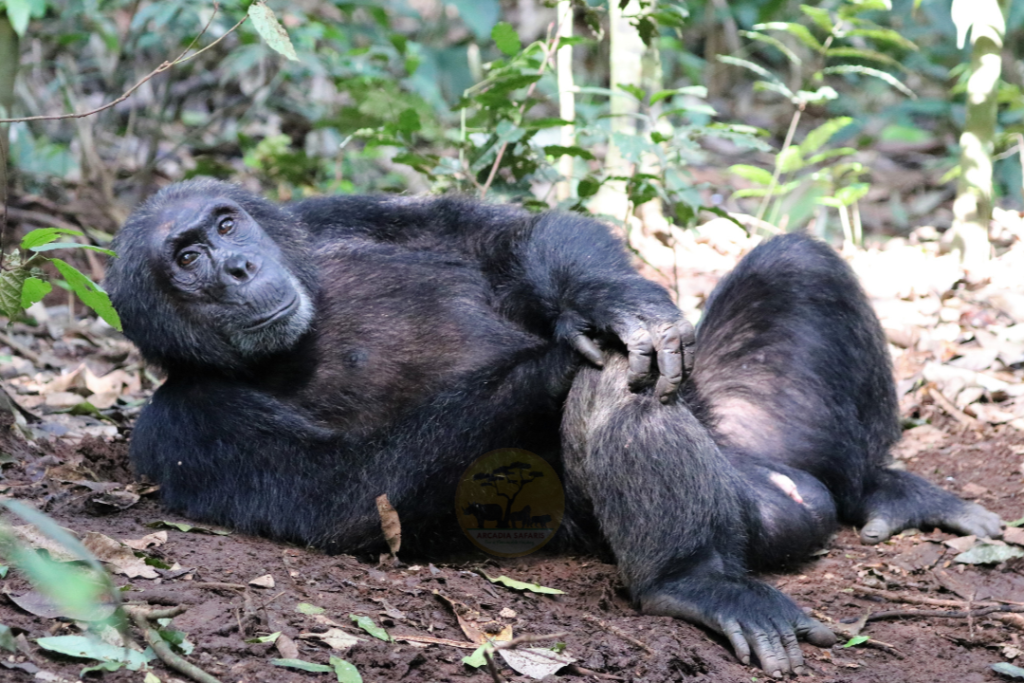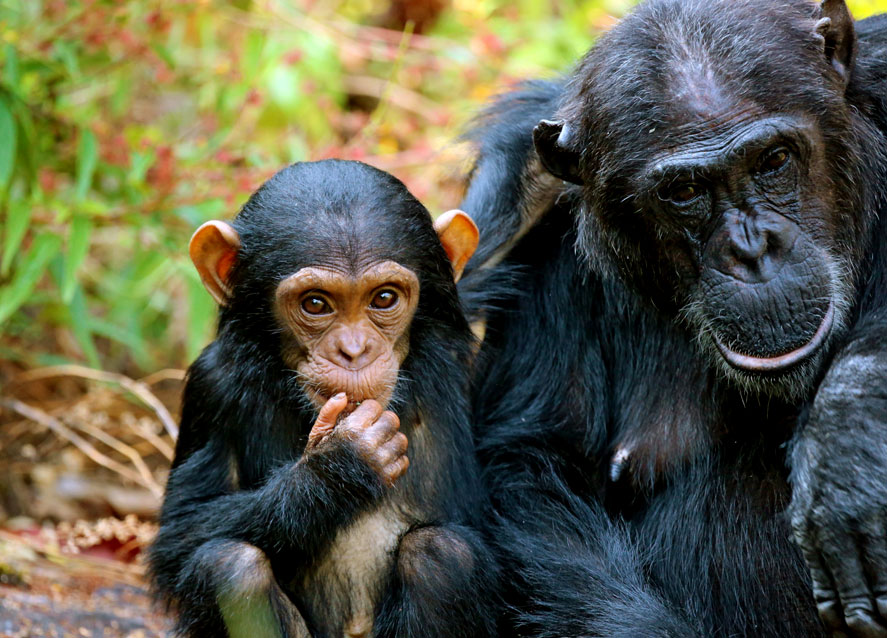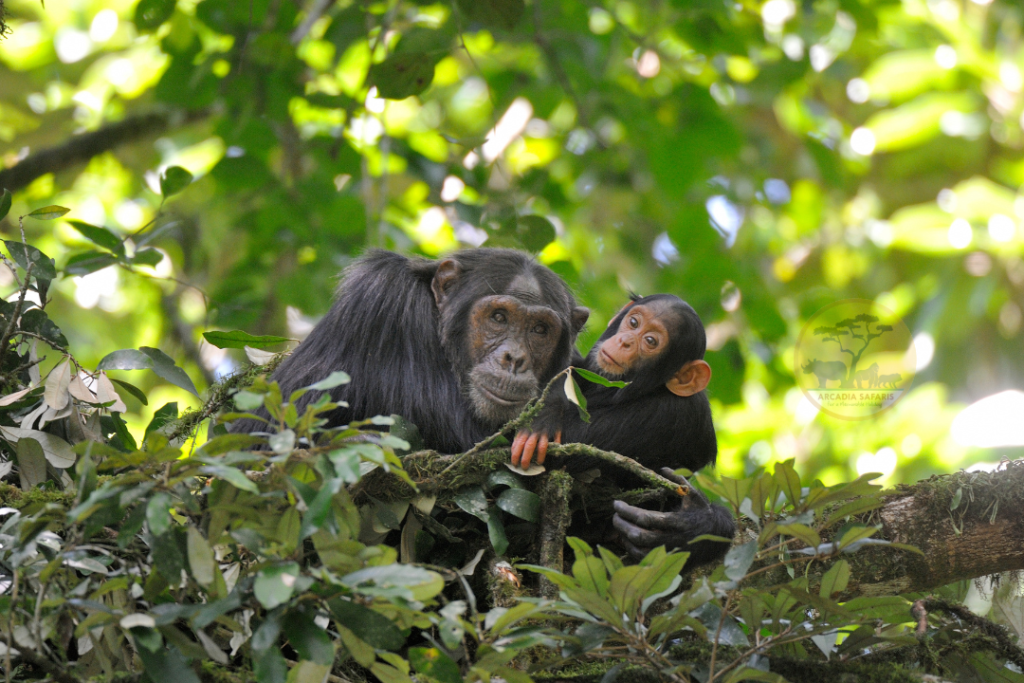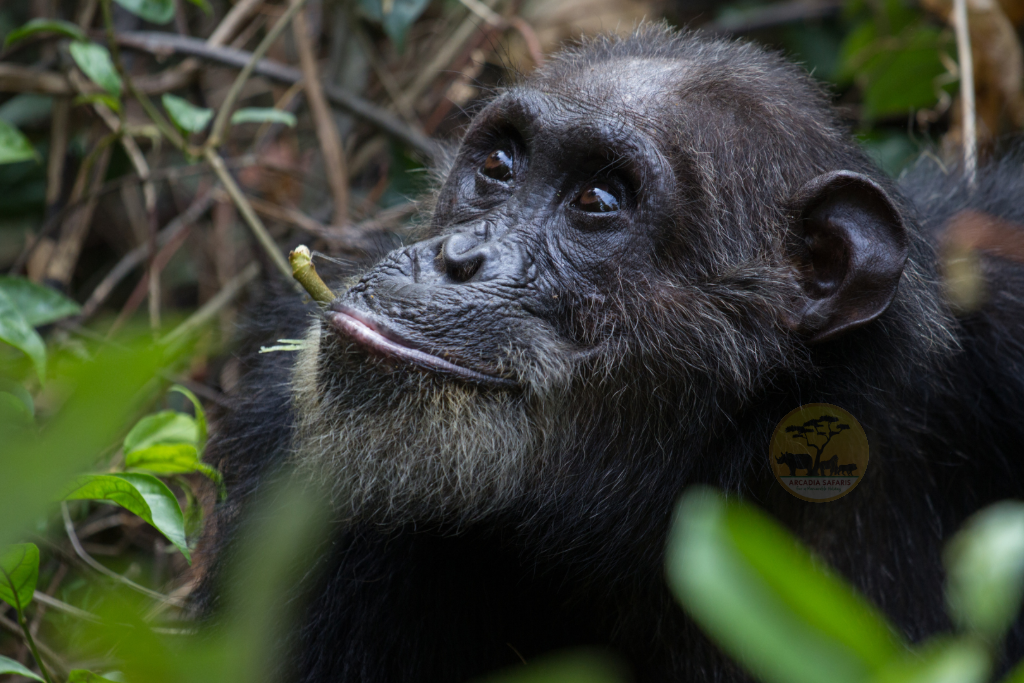How Long Do Chimpanzees Live? A Closer Look into their Life Span in the Wild and in Captivity
How Long Do Chimpanzees Live? Chimpanzees are among the most sensational primates and are the closest living relatives of humankind, with approximately 98–99% of our DNA in common. Their lives, life spans, and aging all have much to teach us about their world and about our own. This paper examines factors affecting the life spans of wild and captive-living chimpanzees, what aging looks like for these intelligent animals, and the vital role of conservation in extending their life spans.
How Long Do Chimpanzees Live in the Wild?
In the wild, a normal living expectancy for chimpanzees lies between 33 and 40 years. Reaching this age, however, requires them to overcome numerous challenges. Unlike predictable safety in captivity, wild chimpanzees live in an unpredictable environment, which is the biggest influencer upon their lifespan.
Key Environmental Challenges
High Infant Mortality: One of the major life span determinants for wild chimpanzees is high infant mortality. Indeed, studies show that 25-50% of young chimpanzees do not survive beyond their early years. Causes of death in young chimps often include diseases, accidents, malnutrition, or predation.
Availability of Nutrition and Food: Wild chimps mostly have seasonal diets, which keep changing with the seasons. Fruits, leaves, nuts, seeds, insects-all form part of their diet, depending on habitat conditions. When these food resources become rare, it will not take much to bring malnutrition, making chimps more susceptible to various diseases; In this respect, where already the deforestation factor has minimized the size of the habitat, finding enough food becomes really tough, adding extra burdens on their survival.
Disease and parasites: Wild chimpanzees are frequently threatened from respiratory infections to parasitic infestations such as malaria. Outbreaks of zoonotic diseases such as Ebola have also devastated wild populations in certain regions and caused great declines.
Predation and Conflict: While the chimpanzees have impressive survival instincts, they are by no means free from predation in all matters. The younger ones or weaker ones fall prey to leopards and large snakes. Besides, territorial conflicts among the chimpanzee groups at times break into violence that results in injuries or death, especially amongst males.
Social Structure and Hierarchy: Dominant individuals normally have first priority in the access to resources, including food and mates, which in turn create an impact on health and longevity within the complex social hierarchy of the chimpanzee group; High-ranking chimps are also more likely to receive grooming and social support, helping them in much better stress management and immunity. Low-ranking members sometimes have to go through more stressors and fight for resource availability, hence it ultimately affects their lifespan.
Variation Across Populations
The wild life span can indeed be very different in location for chimpanzees. Many studies about various communities, such as the ones ranging from Gombe National Park in Tanzania all the way to Taï National Park in Côte d’Ivoire, have shown that some populations live longer than others based on different factors such as exposure to diseases, food availability, and intergroup conflict; In those locations where food is plentiful and disease risks are low, a few wild chimps have been recorded to live well into their 40s.

How Long Do Chimpanzees Live in Captivity?
Chimpanzees, when living in captivity, often live longer than those lives in the wild. This ranges between 40 and 60 years, with some even reported to live beyond 60 years. This is possible due to the safe environment that gives them protection from most natural phenomena. It was recorded that the oldest chimpanzee ever to exist, “Little Mama,” lived into her 70s at the Lion Country Safari in Florida.
Longevity Benefits of Being in Captivity
Nutrition on a regular basis: The captive chimps had more nutritionally rounded diets that cushioned them from experiencing conditions of malnutrition; Their diets in captivity usually range from fruits to vegetables, proteins to special supplements developed, all for better health with the reduced risk of diseases emanating from dieting.
Medical Care: Regular check-ups in health, vaccination, and emergencies in medical treatments have contributed to increasing the life span of captive chimpanzees; The treatment of injuries, infections, and chronic conditions by veterinarians means health problems that would be fatal in the wild are dealt with straight away.
Protection from Predators and Social Conflicts: Protection from natural predators and normally lower risks for aggressive territorial conflicts spare captive chimpanzees from much trauma and chronic stress that may have been experienced in the wild.
Less Environmental Stress: As a matter of fact, zoo or sanctuary chimps are not compelled to forage, defend territories, or undergo seasonal food shortages. This consistency and predictability in their environment exclude stressors, therefore supporting better immunity and general health status.
Long-Lived Chimpanzees
Chimpanzees, such as Little Mama, who have lived beyond 70 years, are highly interesting case studies for aging. Advanced-age captive chimps often follow some very similar patterns in aging to those of humans, including decreased mobility, cognitive impairments, and social retreat; This also makes them very useful subjects in studies on aging, active areas of research that have shed light upon afflictions like Alzheimer’s disease for the benefit of chimpanzee welfare and human health studies alike.
 Aging within Chimpanzee Society: Contributions and Adaptation of Older Chimps
Aging within Chimpanzee Society: Contributions and Adaptation of Older Chimps
Aging in chimpanzees progresses exactly like in humans, from physical changes to the social aspects. As they age, they take unique positions in their communities and frequently undergo both physical and cognitive alterations.
Physical and Cognitive Aging
Reduced Mobility: Older chimpanzee generations are often burdened with arthritis, which keeps them off the climbing life and restricts their locomotion. Consequently, they may spend much more time on the ground and actively take part less in their societies.
Cognitive Changes: There is some degree of cognitive decline that has been recorded in older chimpanzees. It manifests as less playful behavior, becoming more choosy about social associates, and taking longer to solve previously easily solved problems.
Dental Wear and Implication for Diet: Since dental condition may affect the ability of a chimpanzee to chew fibrous foods, dental health is important in chimpanzees; Advanced tooth wear is a common feature in the aging chimpanzee and may be associated with feeding difficulties, hence malnutrition if the diet requires a lot of processing.
Social Functions of Older Chimpanzees
They are respected in their parties, even though elderly chimps are physically slowing. This makes them contributors to stability within that party. They are sources of knowledge for the young, who learn from their behaviors. Older chimps facilitate group cohesion and often lead in the perpetuation of cultural behaviors, such as using certain tools or a method of grooming.
![]()
The Role of Conservation in Supporting Chimpanzee Lifespans
The reasons for this classification are due to habitat loss, hunting, and disease. Because of these reasons, wild population protection and life span prolongation via conservation efforts have become increasingly important in sanctuary environments.
Conservation Efforts and Sanctuaries
The Jane Goodall Institute, the Wildlife Conservation Society, and several African-based conservation societies take part in protecting chimpanzee habitats, anti-poaching enforcements, and the rehabilitation of these animals upon rescue. Sanctuaries provide a semi-wild environment for rescued chimpanzees to live in social groups and enjoy higher living standards with decreased threats from humans or natural predators.
Positive Impact on Lifespan and Research
Sanctuary chimpanzees generally lead healthier and longer lives compared to their wild-living counterparts due to safety from natural predation and diseases, or simply access to timely medical interventions; By their very nature, these sanctuaries also double as research facilities that allow scientists to study health, behaviors, and genetics of the chimpanzee, for furthering conservation in addition to developing medical insights for the benefit of both humans and chimps.
Chimpanzee-Human Longevity Comparison: Insights into Aging and Life-Span
Aging in chimpanzees and humans bears many similarities in terms of the aging process and structure of their respective social needs. Some of those unique comparisons are as follows:
Cognitive Decline: Just like humans, chimpanzees face cognitive decline with increasing age in which their memory fails them and their mental flexibility reduces; The study of older chimps has shed light on diseases related to aging, like dementia, and provided perspectives that can be applied to similar conditions in humans.
Social Bonds Matter: Elderly chimpanzees enjoy company, being groomed, and supported by members of their group. Indeed, studies have confirmed that chimps with strong social bonds live longer, healthier lives, mirroring findings from studies in human social research into aging.
Lifespan differences do exist in that the human average is well beyond that of chimpanzees; however, the longer captivity lifespans suggest that with protection, nutrition, and medical care, the ages reached by chimpanzees are impressive.

Our Remarkable Chimpanzee Tracking Safari Packages
22 Days Best of Uganda Wilderness Adventure
18 Day Exploring Uganda Safari
15 Day Gorillas-Chimps and Big Five Safari
14 Day Uganda-Rwanda Wildlife and Primates Safari
11 Day Uganda Classic Honeymoon Safari
10 Day Uganda Wildlife and Primates Safari
10 Day Highlights of Uganda Safari
8 Day Gorillas-Chimps and Big Five Experience
7 Day Murchison Falls with Chimps and Gorillas
7 Days Rwanda Gorilla & Chimpanzee Classic Safari Adventure
6 Day Chimps Trekking & Nyungwe National Forest
5 Day Best of Rwanda Primates Safari
4 Day Kibale Forest Chimpanzee Tracking
Remarks on How Long Do Chimpanzees Live
The average living years a chimpanzee could have are greatly dependent on the environment. Most, while living in the wild, may live about 33-40 years, but captive chimps have often been seen living more than 50 and some into their 70s. Such intelligent animals require conservation efforts, research, and protected environments to help in aging. By further understanding chimpanzee lifespans, we continue to support the lives of one of our ancestors and insight into aging processes shared by our species.












